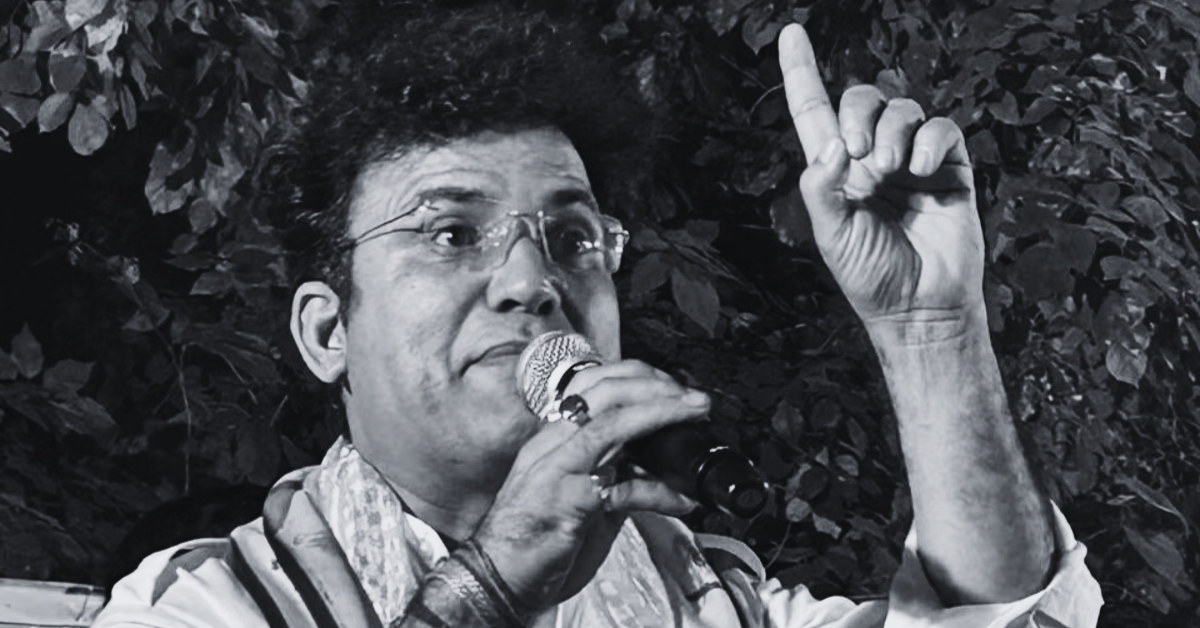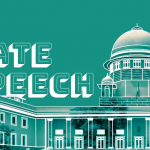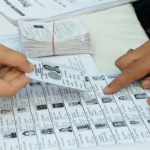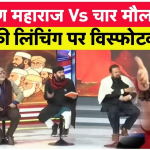
CJP seeks action against BJP Councillor for anti-Muslim & communal election campaign Ravinder Singh Negi’s hate speech during Delhi's election, targets Muslims and urges Hindus to vote for BJP
11, Jan 2025 | CJP Team
On January 10, Citizens for Justice and Peace (CJP) filed a complaint before Chief Electoral Officer Delhi, R. Alice Vaz and Special Chief Electoral Officer Delhi, Rajesh Kumar against BJP Councillor Ravinder Singh Negi (Vinod Nagar – 198) for violating the Model Code of Conduct. The complaint stems from Negi’s inflammatory anti-Muslim speech during a January 6 election campaign event in Patparganj, Delhi. In his remarks, Negi sought to create a divisive communal narrative targeting Muslims for electoral gain, violating Sections 123(2), 123(3), and 123(3A) of the Representation of the People Act, 1951.
He referred to Muslims as “descendants of the Mughals,” called for “Jai Shree Ram” to dominate India, and spread fear by suggesting a Muslim population threat to Hindus, with specific reference to West Bengal, as CJP pleads before the CEO Delhi.
CJP mentioned in its complaint that, “BJP leader Ravinder Singh Negi’s speech appears to be a clear attempt to communalize the election process by drawing sharp religious lines between Hindus and Muslims. By invoking his identity as a “Sanatani Hindu” and asserting a duty to protect Hindus, Negi positions the Hindu community as a victim in need of protection from an alleged Muslim threat. He frames this as a moral imperative, aimed at gaining votes on religious grounds rather than on merit or policy.”
CJP stated that BJP Councillor’s speech highlights divisive rhetoric, particularly in his mention of the “descendants of the Mughals” and their “faces downcast,” which seems to stigmatize Muslims by associating them with past Muslim rulers in India. This historical reference is meant to provoke fear and resentment towards Muslims, painting them as hostile or antagonistic to Hindu interests. The statement that “only ‘Jai Shri Ram’ will be spoken” further emphasizes Hindu supremacy, implying that Muslims and other non-Hindu groups should be marginalized.
Additionally, Negi brings up the issue of the Kashmiri Pandit exodus and the alleged persecution of Hindus in Bangladesh. While these are legitimate concerns, his framing of these issues in a way that directly associates them with Muslims (both in Kashmir and Bangladesh) exploits communal sentiments to garner support. By focusing on perceived threats to Hindu communities, he uses emotional appeals that stoke fear and division rather than offering solutions to social or economic issues.
The harmful impact of divisive rhetoric on Delhi’s social fabric and democratic values
CJP in its complaint before CEO, Delhi concerned that the divisive rhetoric presented in Ravinder Singh Negi’s speech poses a significant threat to Delhi’s social fabric and democratic values. By categorizing entire communities based on religious identity, Negi fosters division and resentment between Hindus and Muslims. His statements that Muslims are the “descendants of the Mughals” with “faces downcast” perpetuate harmful stereotypes and vilify a large segment of the population. This fuels communal animosity, creating an environment where religious identity becomes the basis for trust and belonging, rather than shared values of equality and mutual respect.
“Furthermore, the use of historical grievances, such as the exodus of Kashmiri Pandits and alleged violence in Bangladesh, stirs up fear and distrust without addressing the broader complexities of these issues. Instead of focusing on unity or national progress, Negi’s rhetoric plays on emotions, encouraging polarization and undermining the inclusive spirit that democratic societies thrive on” as per CJP complaint.
Impact on electoral environment
Additionally, CJP has highlighted serious concerns regarding the impact of divisive language on the electoral environment, particularly in reference to BJP Councillor Ravinder Negi’s statements. CJP stated that Negi’s rhetoric significantly impacts voting behavior, as it shifts the focus of electoral choices from substantive issues like governance, economic growth, healthcare, and infrastructure to communal anxieties. This shift, according to CJP, undermines reasoned debates and encourages a political discourse cantered on identity politics and exclusionary agendas. The divisive language employed fosters communal polarization, transforming elections into contests for dominance rather than forums for collective progress. Voters, CJP mentioned, are swayed by alarmist narratives rather than informed decision-making based on candidates’ policies and merits. CJP also pleaded that this kind of rhetoric diminishes the democratic integrity of the electoral process, as it exploits religious and cultural insecurities.
Furthermore, CJP emphasized that such communal narratives erode public trust in democratic institutions, as high-ranking leaders like Negi set a troubling precedent prioritizing polarization over unity. CJP noted that this rhetoric risks inciting social unrest, which could have lasting consequences for peace and stability in Delhi.
Violations of the Model Code of Conduct (MCC)
CJP also brought attention to Negi’s violations of the Model Code of Conduct (MCC), specifically stating that his statements breach guidelines aimed at ensuring free, fair, and peaceful elections. CJP pointed out that Part I of the MCC prohibits activities that aggravate existing communal tensions, which Negi’s comments clearly violate by using religious identity to promote political loyalty. His call for Hindus to vote for BJP based on religious grounds and his derogatory references to Muslims further exemplify this breach. Additionally, CJP emphasized violations under Part V of the MCC, where appeals to religious sentiments in election campaigns are prohibited, stating that Negi’s speech violates this by promoting Hindu identity and vilifying Muslims.
Legal violations under the Representation of People Act, 1951
CJP also referenced legal violations under the Representation of People Act, 1951, specifically Section 123(2), which prohibits undue influence on voters. CJP pleaded that Negi’s religious appeals aim to influence voters by framing voting for BJP as a moral duty, based on religious loyalty rather than policy considerations. CJP further noted that Negi’s appeal violates Section 123(3), which prohibits appeals on religious grounds, as well as Section 123(3A), which prohibits promoting feelings of enmity or hatred between communities for electoral gain. CJP argued that Negi’s divisive rhetoric, which creates hostility between Hindus and Muslims, seeks to exploit these divisions for political advantage, violating multiple sections of the Representation of People Act.
CJP’s complaint to CEO Delhi dated January 10, 2025 may be read here:
Related:
CJP files 3 MCC violation complaints with CEO Maharashtra against Suresh Chavhanke for hate speech
CJP files 5 hate speech complaints before CEO Maharashtra as violated MCC
CJP’s fight against Hate: FIR filed against Suresh Chavhanke for Hate Speech at Karad event










